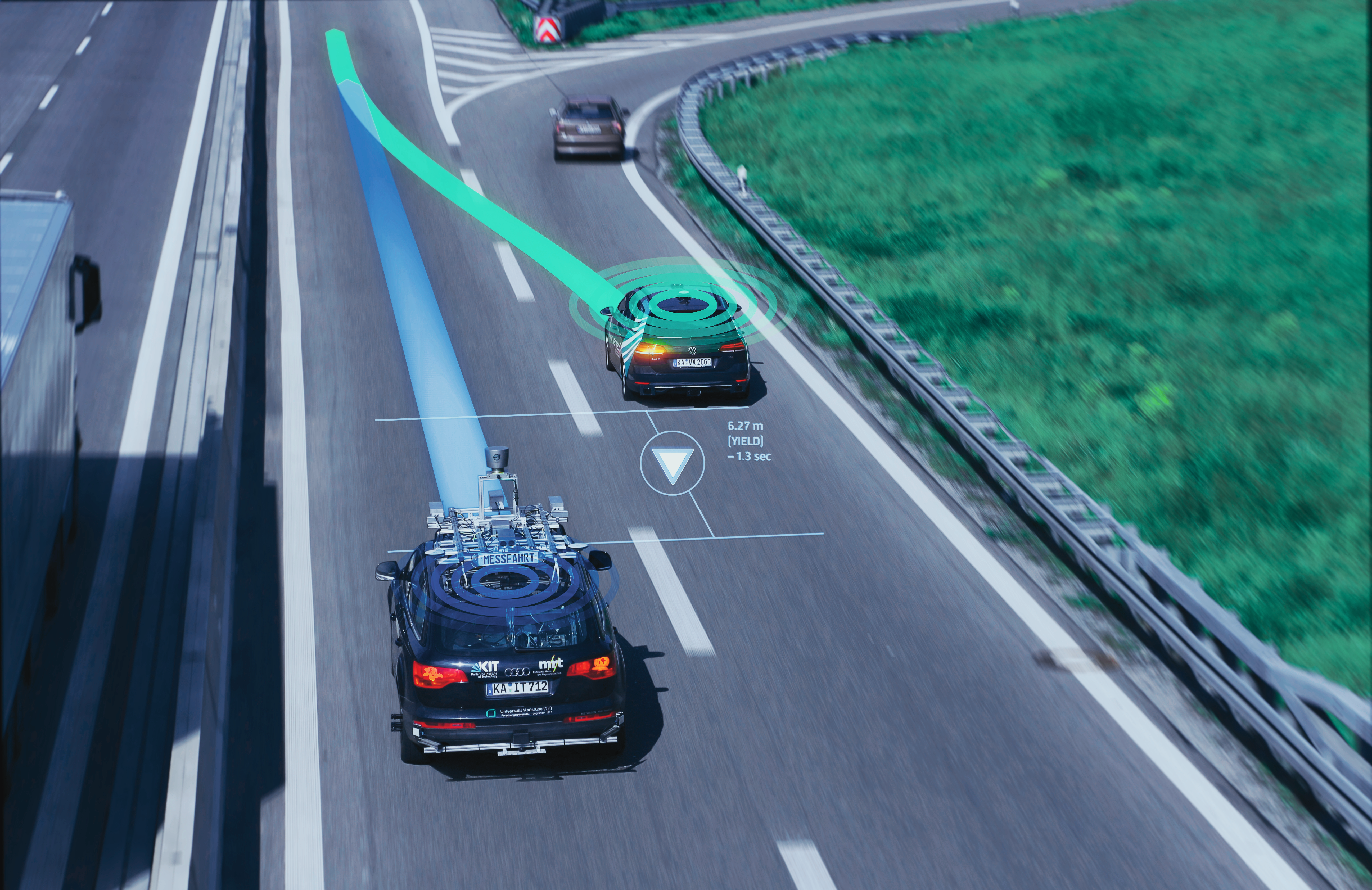No other technology changes the driving experience of a vehicle as strongly and sustainably as the new assistance functions and the automation of driving. The vehicle is continuously changing into a mobile living space. Mastering this transformation process secures the technological leadership and economic success of automobile manufacturers and suppliers and characterizes a successful national and European transport policy.
The transformation is reflected in ever more powerful driver assistance systems: Vehicles recognize lane boundaries and traffic signs. They understand the condition and needs of drivers and passengers. They adjust to the driver and passengers, perform automatic emergency braking or are able to follow the preceding vehicle automatically. However, a variety of interdisciplinary research and development work is still required to make self-driving vehicles suitable for everyday use in road traffic.
Fraunhofer Automotive bundles the necessary competencies - e.g. in the fields of communication technology, microelectronics, artificial intelligence, algorithms, reliability, big data, test engineering and human-technology-environment-interaction. In addition, the institutes are also working in the areas of system engineering and systems research on business models, acceptance research and the analysis of the economic and social framework conditions for passenger and freight traffic in order to accompany manufacturers and suppliers and to be able to set new impulses on the way to autonomous driving.
 Fraunhofer-Allianz Verkehr
Fraunhofer-Allianz Verkehr